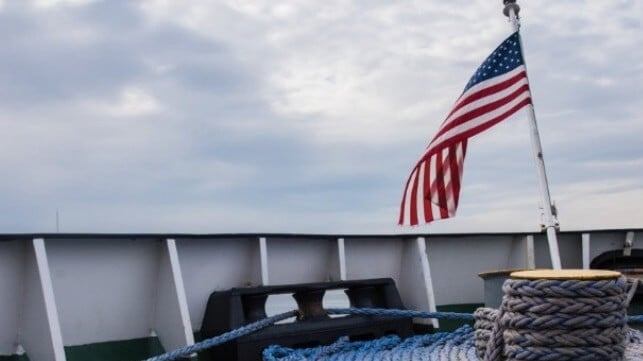Study: U.S.-Flag Shipping Could Lead the Way on Decarbonization

The U.S.-flagged fleet is in prime position to lead the way on decarbonization, according to a new report by the UK maritime consultancy UMAS.
American tonnage makes up a small proportion of the world's total, and it accounts for about 2.4 percent of shipping's carbon emissions. Most of that amount is from domestic Jones Act trade, and that could create an opportunity for U.S. shipyards and shipowners to innovate.
According to UMAS, over 40 percent of the U.S. fleet's energy supply could be decarbonized by the end of the decade. With planning, this could happen within the usual cycle of tonnage renewals, UMAS suggests, without need for extra yard periods for retrofits.
U.S. shipping is clustered geographically, with most ships operating on predictable regional routes. This could be an advantage for introducing new green-fuel infrastructure, and UMAS sees the Pacific, the Gulf of Mexico and the Great Lakes as top candidate regions for the adoption of zero-emission fuels. "The demand for electrification is higher in the Gulf and the Northeast of the US, while the West Coast and the Great Lakes ports present a strong case for vessels switching to [synthetic green fuels]," suggested the authors.
Electrification would work for smaller vessels with a typical voyage range of about 100 nm, and this could account for up to 19 percent of the U.S. fleet's demand for energy by 2030 (with the right policy incentives). An additional 24 percent of demand - for the remaining boxships, tankers, ro-ro ferries and bulkers in U.S. service - could come from synthetic green fuels. The best potential for green fuels is particularly concentrated on the West Coast's long-haul runs, UMAS found.
“There is enormous potential for the U.S. to be a global leader in maritime decarbonization. This is due to three main factors: energy and technology expertise, lots of coastal and inland shipping activity and geographically favorable conditions. Our models show that this combination makes the U.S a prime candidate for developing domestic and international green corridors," said Dr Jean-Marc Bonello, principal consultant at UMAS.

that matters most
Get the latest maritime news delivered to your inbox daily.
America's tonnage is older on average than the global norm, particularly in the relatively small dry bulk fleet and the (very large) towing-vessel fleet. UMAS suggests that new zero-carbon vessels could be introduced on a rolling basis as older tonnage gets replaced, transitioning both American shipping and American shipbuilding.
"The current ambitious administration has the chance to make this a decade of change for the industry in the U.S. at the time when rapid action is needed to achieve science-based climate targets," said Bonello.
